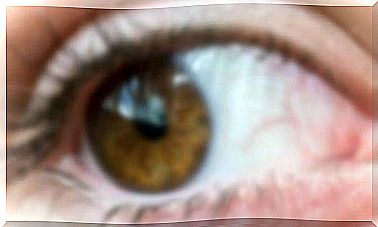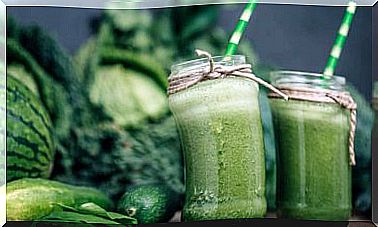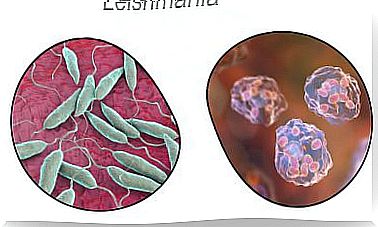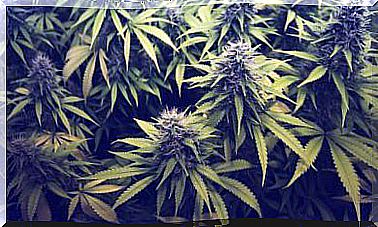What Are The Nutritional Requirements Of The Elderly?
Not everyone knows how much of each nutrient to provide according to individual circumstances. For this reason, we are going to explain the nutritional requirements of the elderly.
These requirements vary over the years. Satisfying them is key to ensuring good health, thus preventing the development of complex pathologies.
This stage of the third and fourth age is considered especially delicate. During old age the body undergoes great changes and is no longer as efficient in its functioning. Optimizing your diet is key to gaining quality of life.
How do nutritional needs change in the elderly?
Although many dietary principles are maintained as we age, nutritional needs undergo a major change. The contribution of those elements that perform functions of construction or maintenance of homeostasis is prioritized, while those in charge of producing energy have to reduce their presence.
It should be noted that ensuring energy balance remains key to meeting the nutritional needs of the elderly. Otherwise, an overweight situation could be caused that has a negative impact. An increase in body fat percentage has been shown to increase the risk of getting sick.

Importance of protein
During old age it is essential to provide a good amount of proteins of high biological value. According to a study published in the journal BioMed Research International , the adequate consumption of this class of nutrients reduces the risk of developing sarcopenia.
Thanks to quality proteins, it is possible to preserve the body’s lean mass, reducing catabolism significantly. Good body composition status is associated with better overall functioning. In fact, high muscle strength is associated with a lower risk of death.
Importance of fat
Lipids, for their part, are capable of intervening in a multitude of different physiological processes. They are considered powerful nutrients when modulating the inflammatory mechanisms of the human body.
According to a study published in the journal International Immunology , omega 3 fatty acids are able to slow down inflammation and help maintain homeostasis in the internal environment.
In addition, these elements have the power to provide some protection against the development of chronic pathologies, such as cardiovascular, metabolic and neurodegenerative.
Importance of fiber
During old age, physical activity is often reduced. This also influences the nutritional requirements of the elderly, since energy expenditure is lower. But it is important to note that exercising less can lead to a slowdown in intestinal transit, which causes constipation.
To prevent this problem, it is essential to increase the intake of fiber, both soluble and insoluble. Thus, a better cleaning of the intestinal wall is generated, a greater diversity of the microbiota and a functional motility that allows the fecal bolus to descend in an agile way.
Importance of vitamins and minerals
Micronutrients are also elements that must be provided on a daily basis during old age. Vitamin C requirements are increased, for example, in order to stimulate collagen synthesis.
Monitoring of vitamin D levels is essential. A deficiency of it can be associated with an increased risk of developing pathologies such as osteoporosis.
Likewise, it is convenient to increase the contribution of zinc and iron. This prevents anemia and also problems in the functioning of the immune system.
Importance of hydration within the framework of the nutritional requirements of the elderly
During the first stages of life, the percentage of water in the body with respect to the total is very high. However, as the years go by, the amount of water present in the body progressively decreases. This manifests itself at the skin level, especially.
Taking into account that dehydration is dangerous, during old age it will be necessary to ensure that the necessary amount of daily fluids are consumed. Even more in times of heat. Likewise, it is essential to avoid substances that can dehydrate or generate high diuresis, such as alcohol.

Risks associated with nutritional problems in old age
During the last stages of life, a series of problems may appear that are based on a dietary component. If the nutritional requirements of the elderly are not satisfied, inefficiencies will be generated in the functioning of the systems. A very common example is being overweight, prevalent among the elderly.
Likewise, metabolism-related problems, such as type 2 diabetes, are common, especially if the intake of simple sugars has been high throughout life.
In rarer cases, episodes of malnutrition may occur. This usually derives from a loss of appetite that has to be compensated with the introduction of foods with a high nutritional density.
It is important to meet the nutritional requirements of the elderly
As you have seen, adjusting the diet to meet nutritional requirements during old age is key in order to maintain good health.
It may even be necessary to include certain dietary supplements, although in this case they must be recommended by a qualified professional.









